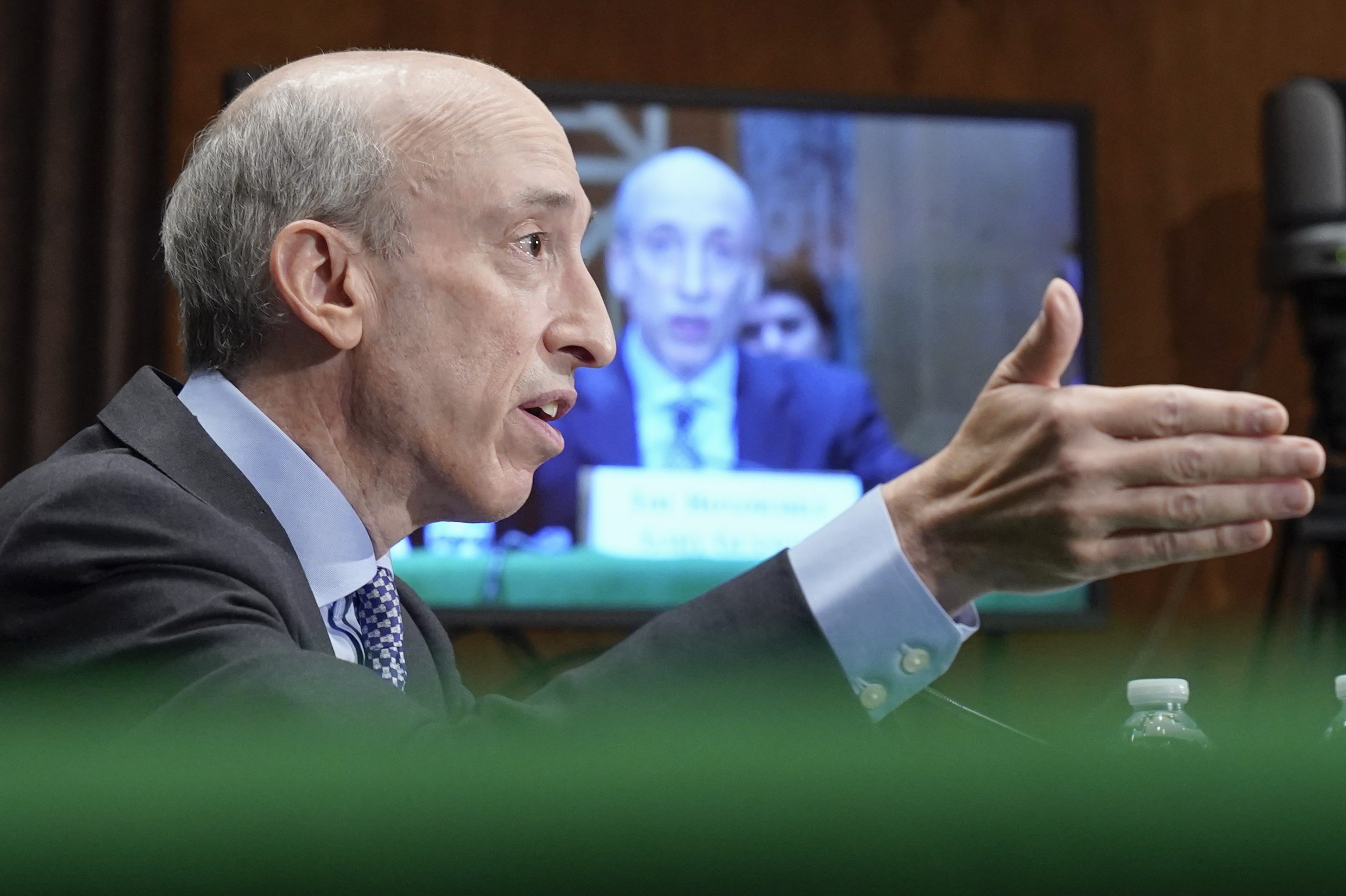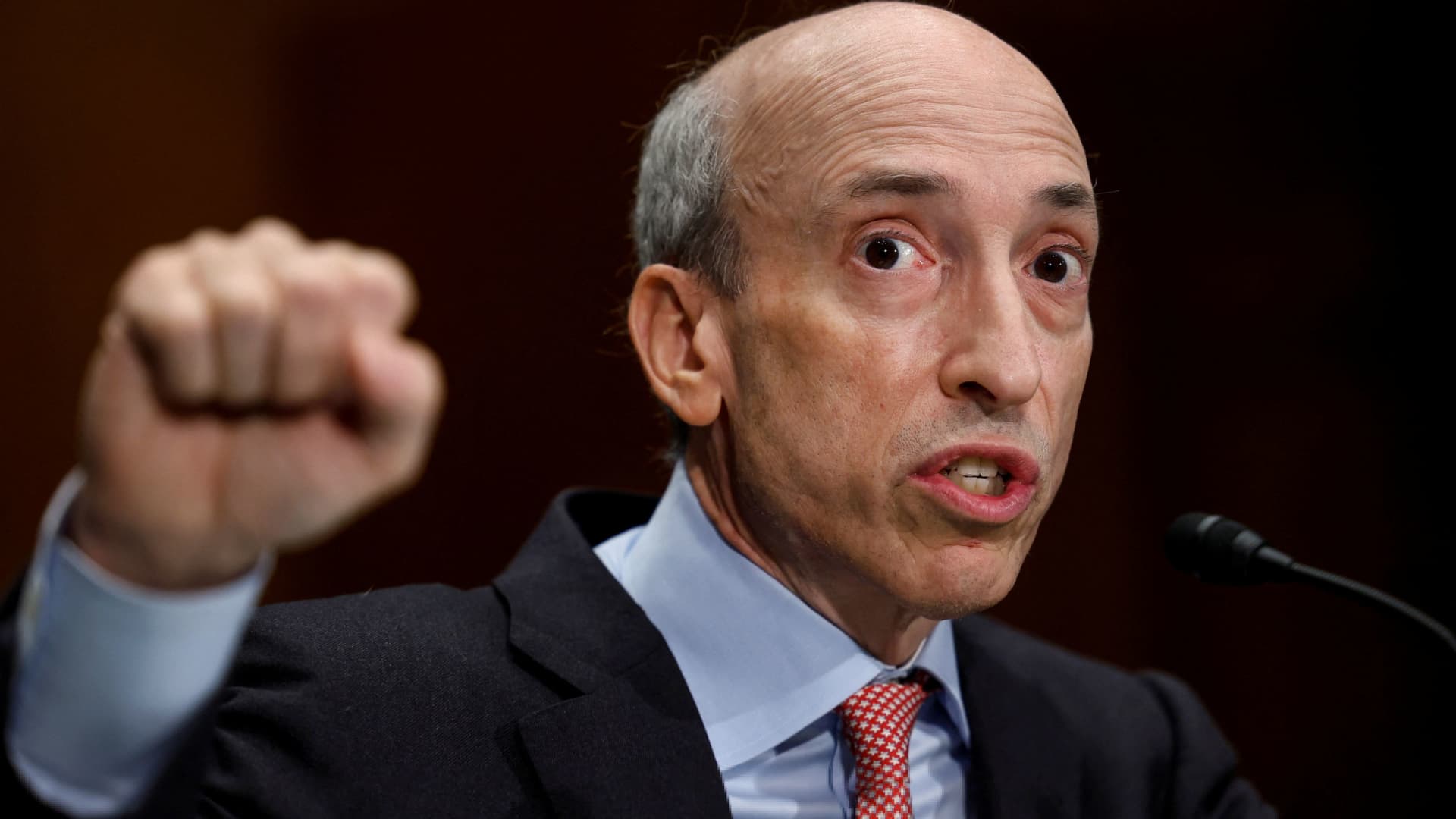On Wednesday, Securities and Exchange Commission Chair Gary Gensler will oversee a vote on a contentious proposal: a rule mandating that corporate entities disclose climate change-related risks considered material.
President Joe Biden has labeled climate risk as an “existential threat,” emphasizing its significance over other global perils.
Initially introduced in March 2022, the climate disclosure rule garnered support from Gensler, who highlighted investors’ growing interest in climate-related disclosures due to their potential financial implications for companies. He emphasized the necessity for reliable information to guide investment decisions.
The final version of the proposal is pending release.
The initial proposal from 2022 outlined disclosure requirements across three categories: Scope 1, encompassing direct emissions; Scope 2, covering indirect emissions; and Scope 3, involving emissions from supply chains and product users.
Criticism, notably from corporations, targeted the Scope 3 requirements, deeming them overly burdensome. Reports suggest the final proposal may drop Scope 3 disclosures and soften parts of Scope 1 and 2 requirements.
The proposal attracted unprecedented attention, with over 15,000 comment letters submitted to the SEC. While some view the proposal as governmental overreach, others argue it aligns with the SEC’s history of mandating disclosures relevant to investors’ assessment of financial prospects.

This Week: SEC Decides on Hotly Debated Climate Change Rule (Credits: NPR)
Certain companies expressed support for the SEC’s initiative, citing existing reporting practices and the potential for standardized reporting.
However, opposition persists, particularly regarding Scope 3 disclosures. Critics argue excessive disclosure requirements and perceive the proposal as advancing a climate change agenda through regulatory channels.
Anticipating legal challenges, opponents may invoke the Administrative Procedure Act, scrutinizing the SEC’s adherence to procedural standards and the necessity of regulatory action.
The 2022 Supreme Court ruling in West Virginia v. EPA, which emphasized limits on regulatory authority, may also influence legal challenges against the SEC’s climate rule, questioning congressional authorization for such action.
Regardless of the final proposal’s scope, increased regulation awaits publicly traded companies, translating to elevated costs, heightened activism, and greater litigation risks.
The Exchange Traded Funds (ETFs) community closely monitors the vote, anticipating the proposal’s impact on climate-related data availability for ESG (environmental, social, and governance) ETFs. Improved data quality could enhance portfolio management but may also fuel debates over ESG fund authenticity and fee structures.
The SEC’s proposed rule may reshuffle perceptions of companies’ environmental commitments, potentially reshaping ESG investing dynamics and sparking further debates over portfolio alignment with stated principles.























